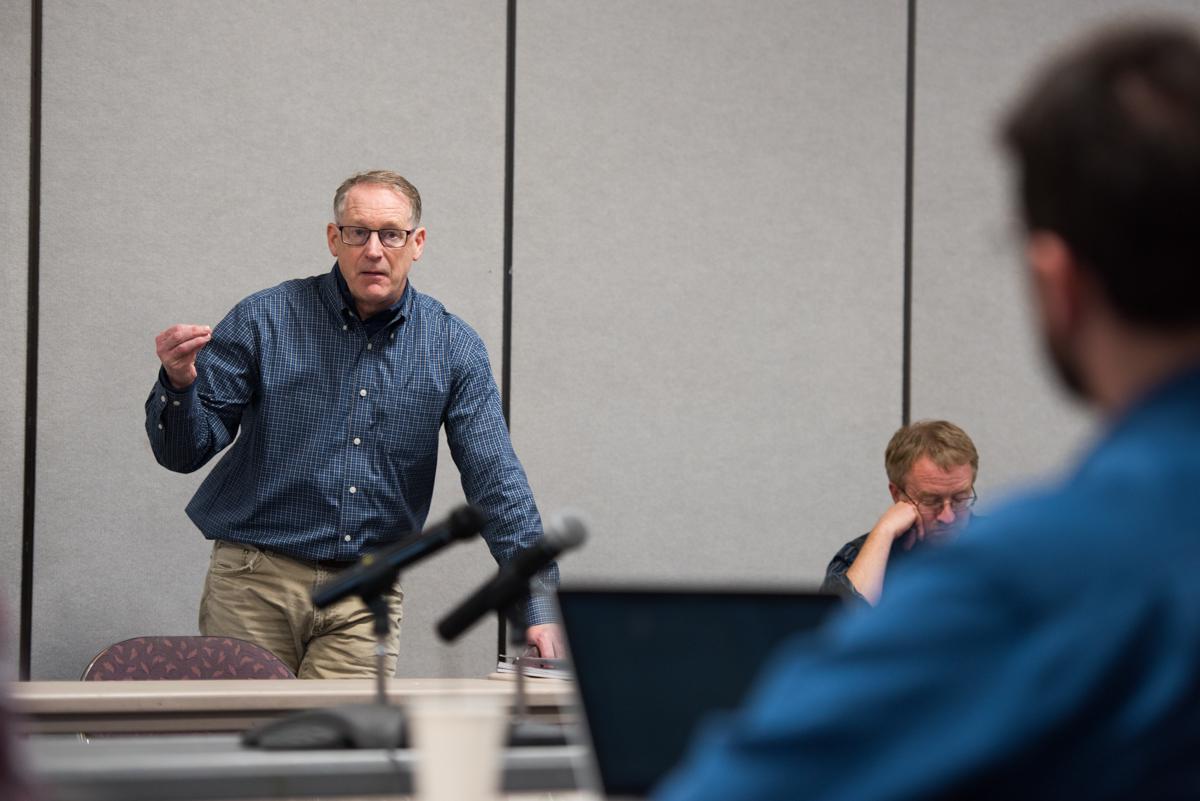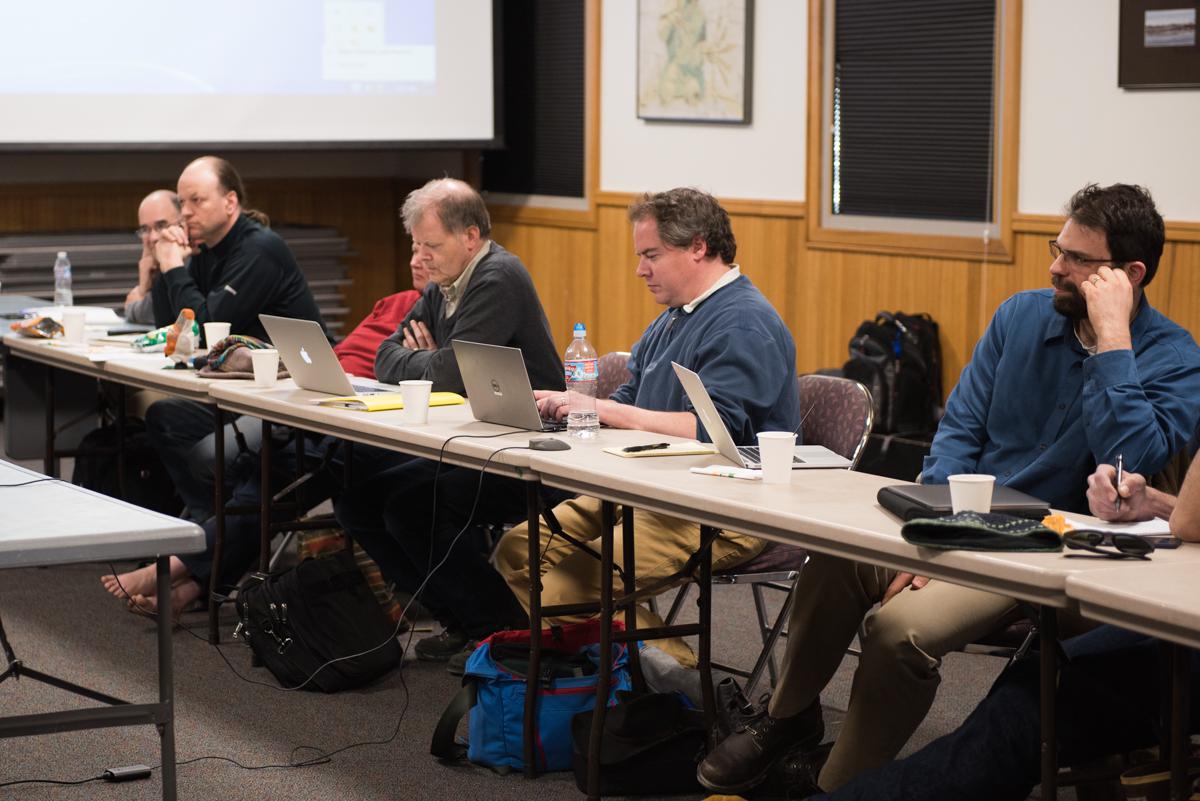
This fall, Kongiganak is set to install a lithium ion battery in its utility system that could replace more than half the village’s electric and heating needs with wind energy. For more than four years, about a third of the village’s energy has come from this renewable resource.
On Tuesday, a group called the Alaska Microgrid Partnership met in person for the first time and traveled to Kongiganak to see this rare rural Alaska phenomenon and how it works up close.

Dennis Meiners leads Intelligent Energy Systems, the company that designed Kongiganak’s wind system.
“Some communities don’t have the capacity to keep those systems running, or to operate them, or to even build them, or refine them, and it was pretty clear today that Kongiganak surely has the capability to do that,” Meiners said. “They’re very proud of what they have, and they’re able to operate this system. And they’re working to continue to improve it,”
Meiners’ company is part of the Alaska Microgrid Partnership, a group that also includes national energy labs, the Department of Energy, the University of Alaska and the Renewable Energy Alaska Project.
“The goal is to define how far we can go with renewables, energy efficiency, and energy conservation, together, in reducing the use of fossil fuels, lowering energy costs, and creating jobs,” Meiners said.
The microgrid partnership is designing models to post online that can be used by any rural Alaska community to reach these goals. They’re using two communities to create the models: Chefornak, which they believe could run largely off wind, and Shungnak, which could do the same with solar energy.
The project does not include funding to install these systems, but Chefornak has secured federal funding from the U.S. Department of Agriculture and should receive three wind turbines by 2019.
The Alaska Microgrid Partnership started last year and will end in September if federal funding isn’t renewed.
Anna Rose MacArthur is a reporter at KYUK in Bethel.




